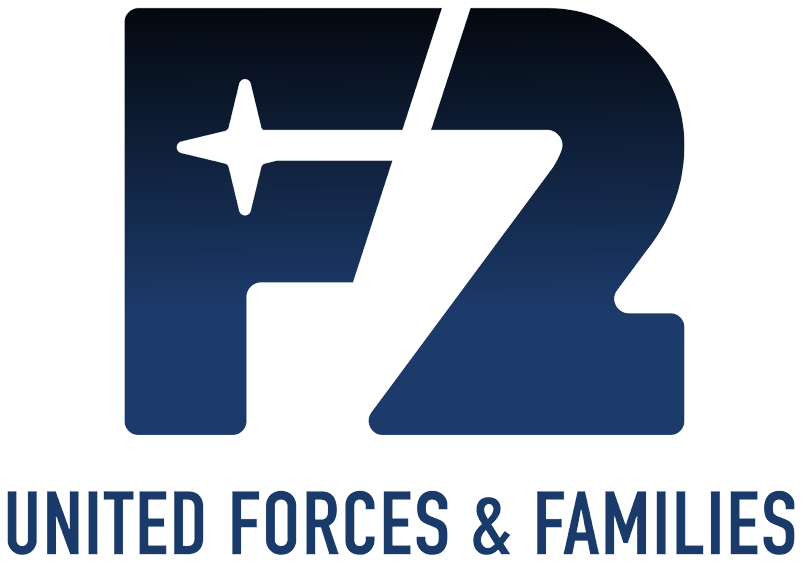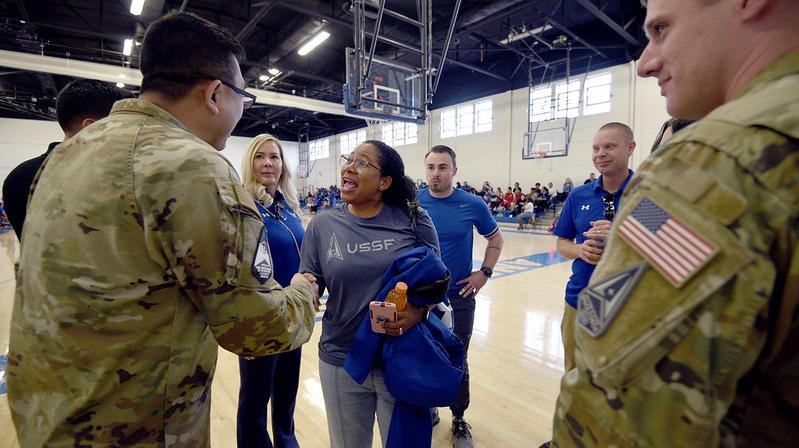Evolution Is Vital to Meeting New Spouses & Families’ Needs
April 1, 2025 | By Nicole Murray
“When in doubt, go Stepford.”
That was the advice I received from a veteran spouse early in my husband’s career. She was of the mindset that there was a certain way a military spouse should look and act. Dated? Yes. Shocking? Probably not for many of you.
Thankfully, the role of the military spouse is changing, and Space Force leadership and families must be mindful of this as we collaborate to shape the Guardian experience. Military spouses have more of a voice than ever before, and new technologies and virtual communities are helping to amplify that voice and connect them in new ways.
Faced with an issue, Guardian spouses aren’t waiting for solutions from others. They are moving away from the complaint of, “They need to fix this,” and increasingly rolling up their sleeves and saying, “I need to fix this,” finding creative ways to address concerns.
Perhaps even more significant is the idea that they are being encouraged to do so — and celebrated when they succeed.
“The Space Force knows it faces a lot of challenges, and more importantly, it knows that best answers and most effective “fixes” can come from anywhere,” said Jennifer Saltzman, spouse of Gen. B. Chance Saltzman, Chief of Space Operations. “The key is actively searching for and listening for the ideas that can help address challenges.”
“The USSF leadership is committed to maintaining open lines of communication with all members and families so that we have the best chance to hear the ideas as they are formed and then support their implementation wherever we can. We’ve seen many examples where people have taken the initiative to solve problems — not just raise them. We greatly appreciate this and take any chance we can to highlight those efforts.”
“Guardian Spouse Candid Conversations” is a grassroots effort led by Space Force spouses, not USSF Public Affairs or STARCOM. But leadership has regularly offered support and expertise to further discussions and learning.
Chief Master Sergeant of the Space Force John F. Bentivegna is one such leader. He and his wife Cathy participated in February, lending their voices to the topic of military marriages and relationships. Cathy, who also works full-time, has prioritized mentoring and advocating for younger military spouses.
“When I was a young military spouse, I was too intimidated to speak up or ask questions,” Cathy said. “I want to be accessible to junior spouses. I want to help them learn to let go of what and who they think they should be.”
The more authentic we are, the more we can resonate with others.
While we should respect the traditions of the services and families who have come before us, we must evolve to better meet the needs of this generation of Guardian families—and those who will follow us. We wouldn’t expect to see a “Space Force Spouses Handbook” that focuses on etiquette and protocol but rather a compilation of resources that offer multi-faceted support to military families throughout their journey.
The resources available to military families are extensive, coming from government programs and community and corporate partners. However, this can be overwhelming to navigate for a family facing the emotional and physical challenges that come with the military lifestyle. We need to better know and understand what help is available if we want to support others.
Five & Thrive has become a leader in this space, providing “one-stop shopping” for an overview of available resources based on service branch. Written for military families by military spouses, we trust their guidance more because they have lived it and come through to the other side.
Military spouses have seemingly limitless ways to share that guidance. Our village may not be able to PCS with us, but virtual communication options help us maintain connections with our family, friends, and professional networks as we relocate.
Sharing our experiences is powerful. It signals to others that they are not alone and that their struggles are not insurmountable. Social media and virtual engagement technologies that became more commonplace during the pandemic have provided a platform for military families. For a family on the move, Facebook communities can be a critical resource to gain insight on their new duty station and connect with neighbors before they even pack out. That headstart can make a huge difference during a difficult transition. “Who has advice for packaging 425,000 Lego sets (number approximate, asking for a friend)?”*
Opportunities to raise your voice and effect change are available to those who are ready for them. But we can’t help others navigate the road if we’ve never looked at a map.
*The answer was Saran Wrap, for those interested. But make sure you detach and tape down any protruding lightsabers or quidditch hoops.
This article was written by Nicole Murray, the spouse of an Active Duty U.S. Space Force Guardian deeply committed to serving military families. You can read her full bio and the complete edition of United Forces & Families ENGAGE: Empowering Guardians and Their Families here.

About F2
AFA’s United Forces & Families (F2) program provides direct support to Airmen, Guardians, their spouses, and their children through financial grants, community events, networking opportunities, and more.
